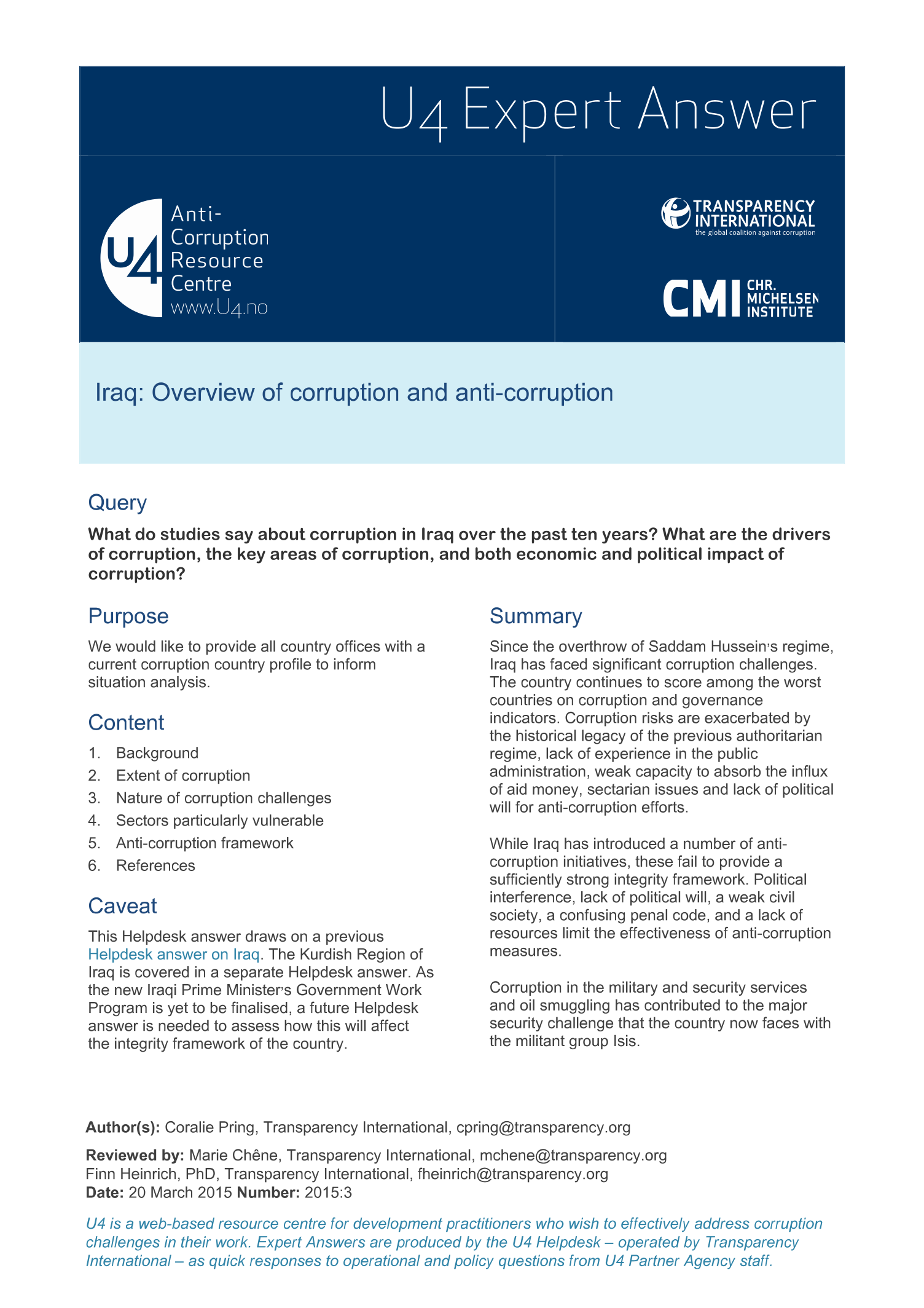U4 Helpdesk Answer
Iraq: Overview of corruption and anti-corruption
While Iraq has introduced a number of anti-corruption initiatives, these fail to provide a sufficiently strong integrity framework. Political interference, lack of political will, a weak civil society, a confusing penal code, and a lack of resources limit the effectiveness of anti-corruption measures. Corruption in the military and security services and oil smuggling has contributed to the major security challenge that the country now faces with the militant group Isis.

Cite this publication
Pring, C. (2015) Iraq: Overview of corruption and anti-corruption. U4 Expert Answer 2015:03
Disclaimer
All views in this text are the author(s)’, and may differ from the U4 partner agencies’ policies.
This work is licenced under a Creative Commons Attribution-NonCommercial-NoDerivatives 4.0 International licence (CC BY-NC-ND 4.0)


